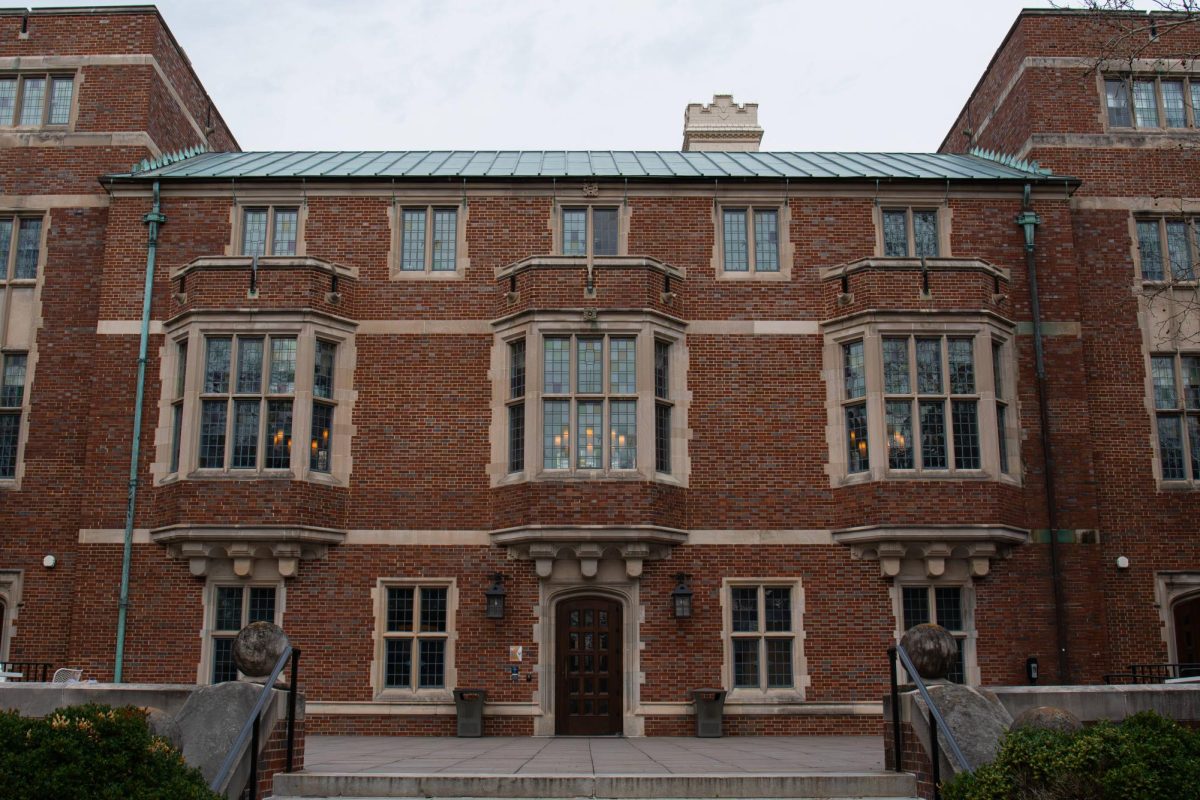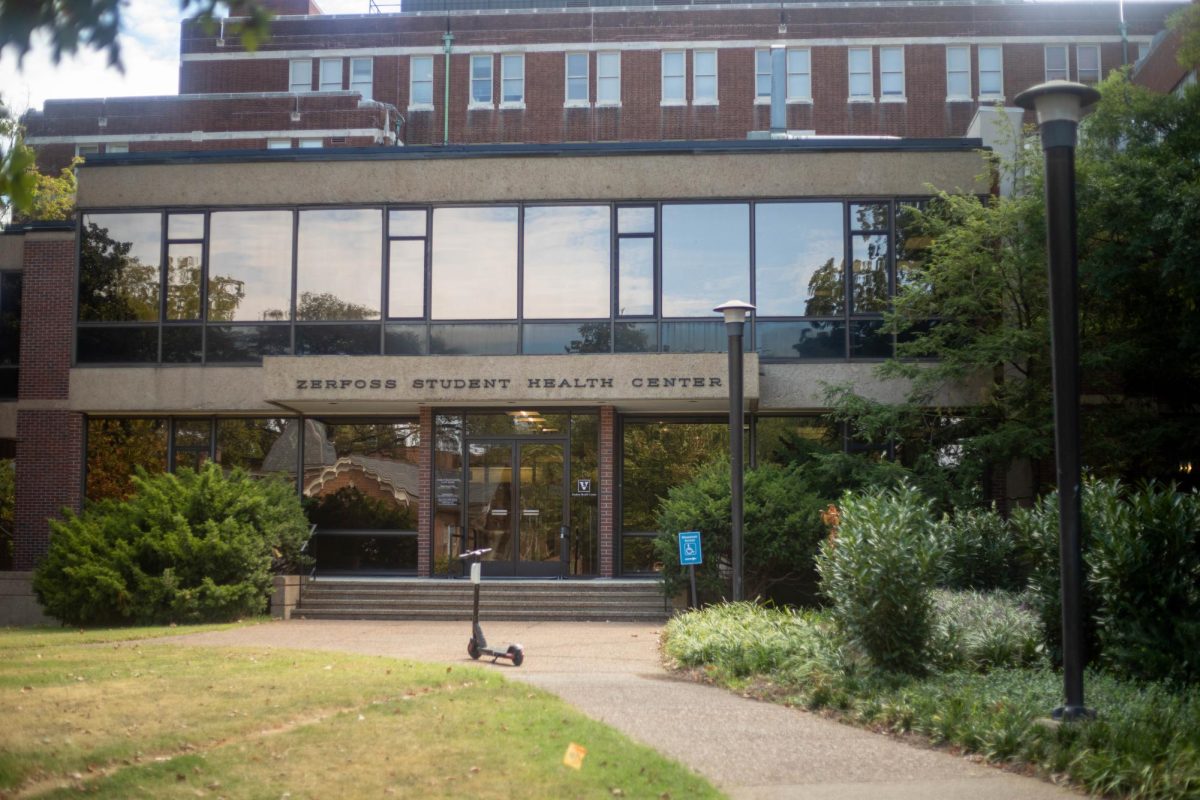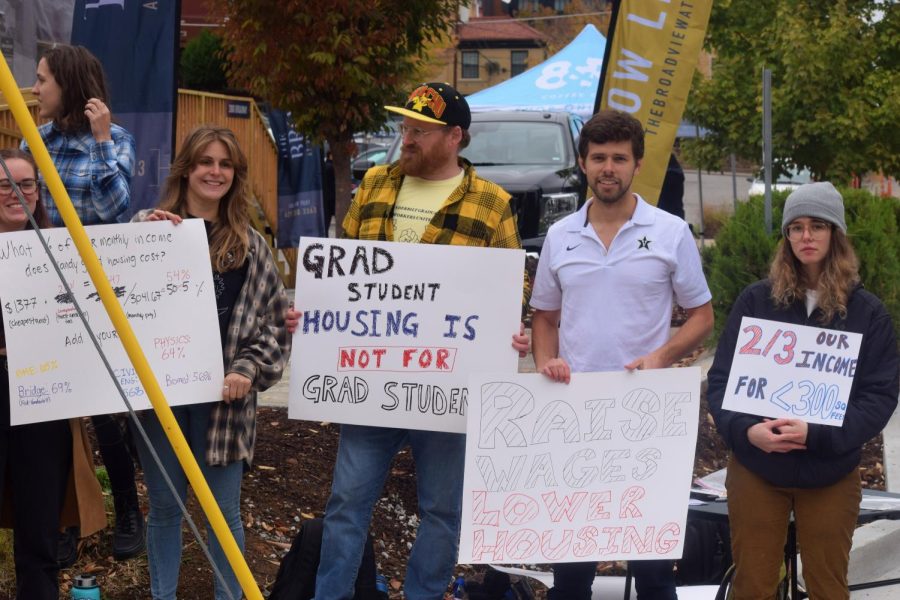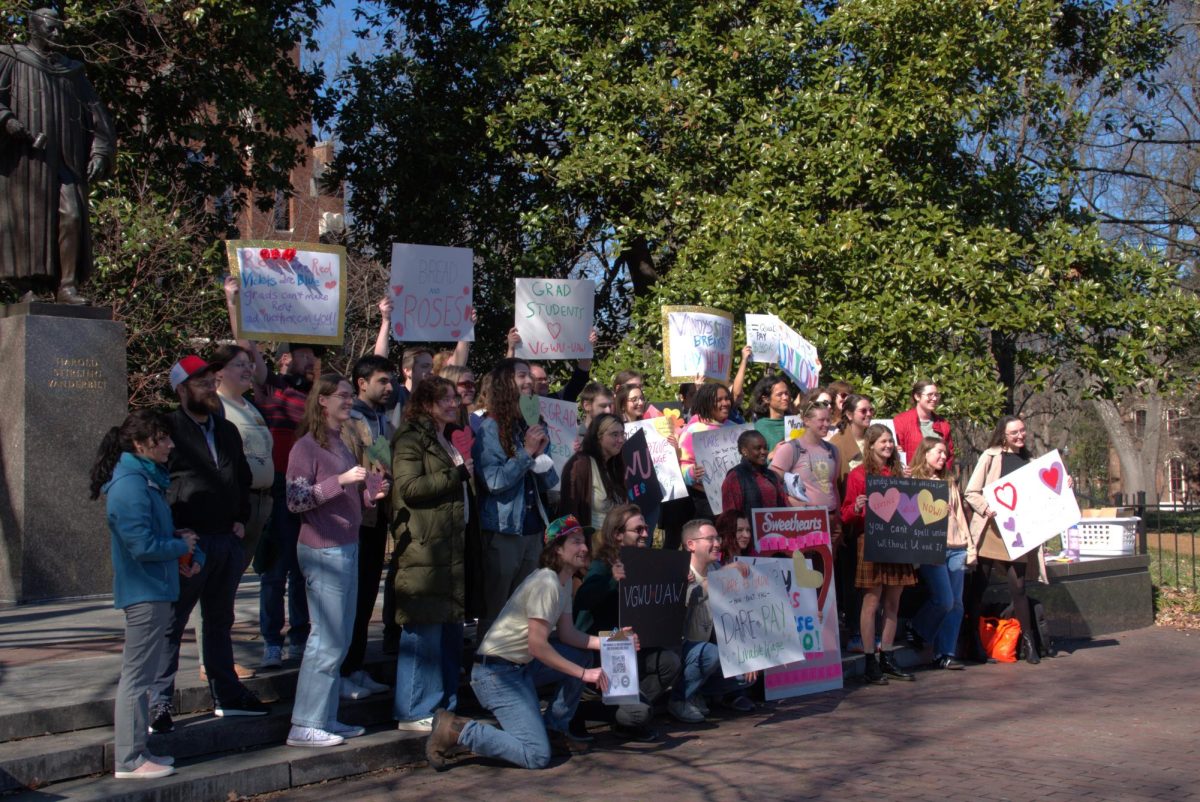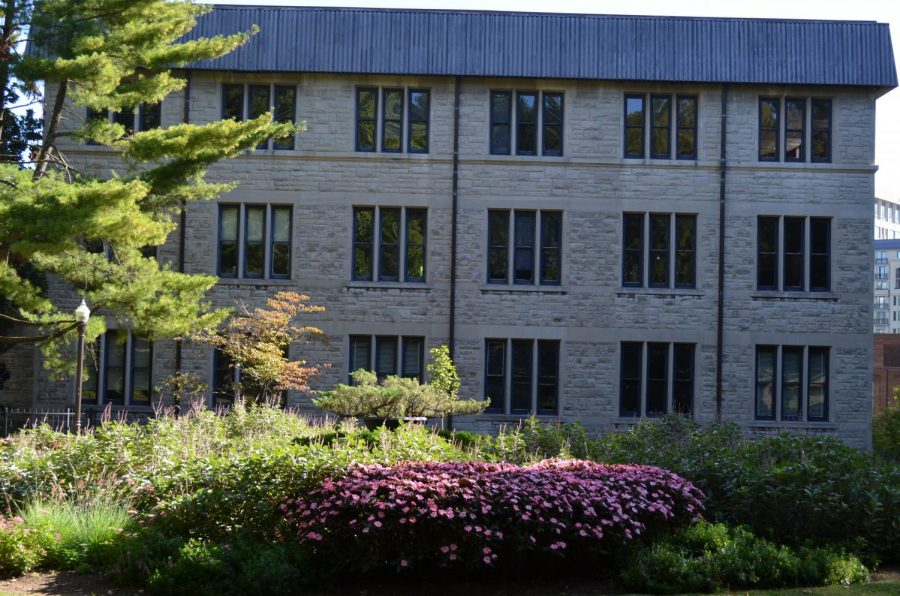Vanderbilt announced on Feb. 26 an increase in doctoral student stipends to a range of $34,000 to $38,000, effective in the next academic year. Previous stipend levels ranged from $28,000 to $36,500. According to the announcement, the change is part of a long-term initiative to increase financial aid provided to Vanderbilt graduate students and is accompanied by additional housing support from university administration.
These changes come following a recent Vanderbilt Graduate Workers United rally for higher stipends and affordable housing. Last spring, the College of Arts and Science increased graduate student stipends by up to 7.9%, which came after a similar VGWU protest in October 2022 and the formation of a Graduate and Professional Student Housing Working Group by university administration to look into students’ housing affordability needs.
Increased stipends
In a message to The Hustler, Vice Provost for Graduate Education and Dean of the Graduate School André Christie-Mizell said the increased stipends reflect the university’s “continuing commitment” to doctoral students’ success and that the total financial aid package for doctoral students is over $75,000 per student, per year. The recent increases apply to Ph.D. candidates in A&S, the Divinity School, School of Engineering, Law School, Peabody College and Basic Sciences.
“Provost [C. Cybele] Raver and I regularly lead listening sessions with graduate students and faculty to be responsive to all sorts of student needs,” Christie-Mizell said. “University leaders also found a presentation by Graduate Student Council executive leaders on findings from a recent survey of students’ financial needs particularly effective, clear and compelling.”
According to GSC Vice President of External Affairs and third-year Ph.D. candidate Bill Smith, graduate students can express their opinions on issues such as stipends and housing affordability at GSC general body meetings, and GSC then takes those concerns to administration through monthly meetings with Christie-Mizell.
“In Fall of 2022, the general body passed the Housing Affordability Resolution and created a data committee that surveyed graduate students,” Smith said. “After analyzing the data, the committee shared some findings with administrators, including Provost Raver, in December 2023.”
GSC was then invited by Raver to share their findings to the Council of Academic Deans in January 2024, a presentation which included data on housing costs for graduate students, cost of living increases and the experiences of graduate students with housing and food insecurity.
The recent increase affected Peabody students the most, according to Smith, as their stipends increased by over 20%.
“This is a massive and long overdue increase for Peabody students, who have been earning substantially less than their peers in other schools, and we are proud of the advocacy Peabody students put into making this happen,” Smith said.
Camille Msall, a fourth year Ph.D. candidate in Peabody College, said she does not see this increase as the victory others claim it to be.
“As a fourth-year graduate student, it is unclear if students graduating in May next year will even receive this raise because they won’t be on the payroll in June,” Msall said. “Vanderbilt Administration will continue to tout stipend increases that are not really increases above livable wages, if that.”
Smith said the increases are in line with the 4-5% increases for students in other schools at Vanderbilt, but he expressed concerns over these increases not keeping up with inflation and cost of living increases in Nashville.
“We have seen the cascading adverse effects on graduate students from Nashville’s cost of living spike over the past few years,” Smith said. “Graduate students are moving more often, many moving yearly because their rent keeps increasing beyond what their stipends can afford. Often they are moving further outside of the city for lower rents.”
Longer commutes, higher cost of transportation and less time on campus all result from this high cost of living, according to Smith.
“Stipends in line with the cost of living in Nashville alleviate so many of these stresses and disruptions in a way that nothing else can,” Smith said.
Housing support
According to Christie-Mizell, the announcement of increased housing support for graduate students resulted from the Graduate and Professional Student Housing Working Group.
“In the near term, support will include making a housing emergency a qualifying event to receive student support funds, establishing a housing resource office to help with housing-related needs and creating a website consolidating housing-related resources in one easily accessible place,” Christie-Mizell said.
Administration plans to continue finding ways to implement housing support by working with GSC, local landlords and real estate companies. Smith said the “most straightforward” solution to housing affordability issues for graduate students is to pay them enough to afford housing and other necessities.
“It is that simple. The present stipend increases are a first step towards guaranteeing that graduate student workers earn a sufficient paycheck to afford housing and basic necessities regardless of their school,” Smith said.
Collaboration and unionization
Smith also expressed the importance of students working together to advocate for their needs.
“The GSC can and will acknowledge the combined efforts of our student body and of VGWU in advocating for graduate student issues at Vanderbilt, including these stipend increases,” Smith said. “Change only happens when graduate students work together, collect and share experiences and organize across departments.”
Msall expressed similar sentiments to the importance of unionizing as graduate student workers.
“Until we have a graduate workers union, we will not be able to have our voices fully heard by the administration to earn the pay and benefits that we actually need,” Msall said.
VGWU announced that a majority of graduate students at Vanderbilt are now members of the union, according to a March 3 Instagram post.
“Now that we’ve reached a 50% majority with our card campaign, we are continuing to build towards supermajority support of grad student workers to officially petition to be recognized as a union,” fourth-year Ph.D. candidate Lizi Metts said on behalf of VGWU.
Metts said VGWU sees the stipend increase as a “win” directly resulting from their efforts.
“The pressure is definitely building, and admin is listening to us. This is so important and really exciting but also just the beginning,” Metts said. “While we welcome any improvements to our working conditions, the only way to ensure continued improvement and to build on this win is to negotiate a contract.”

